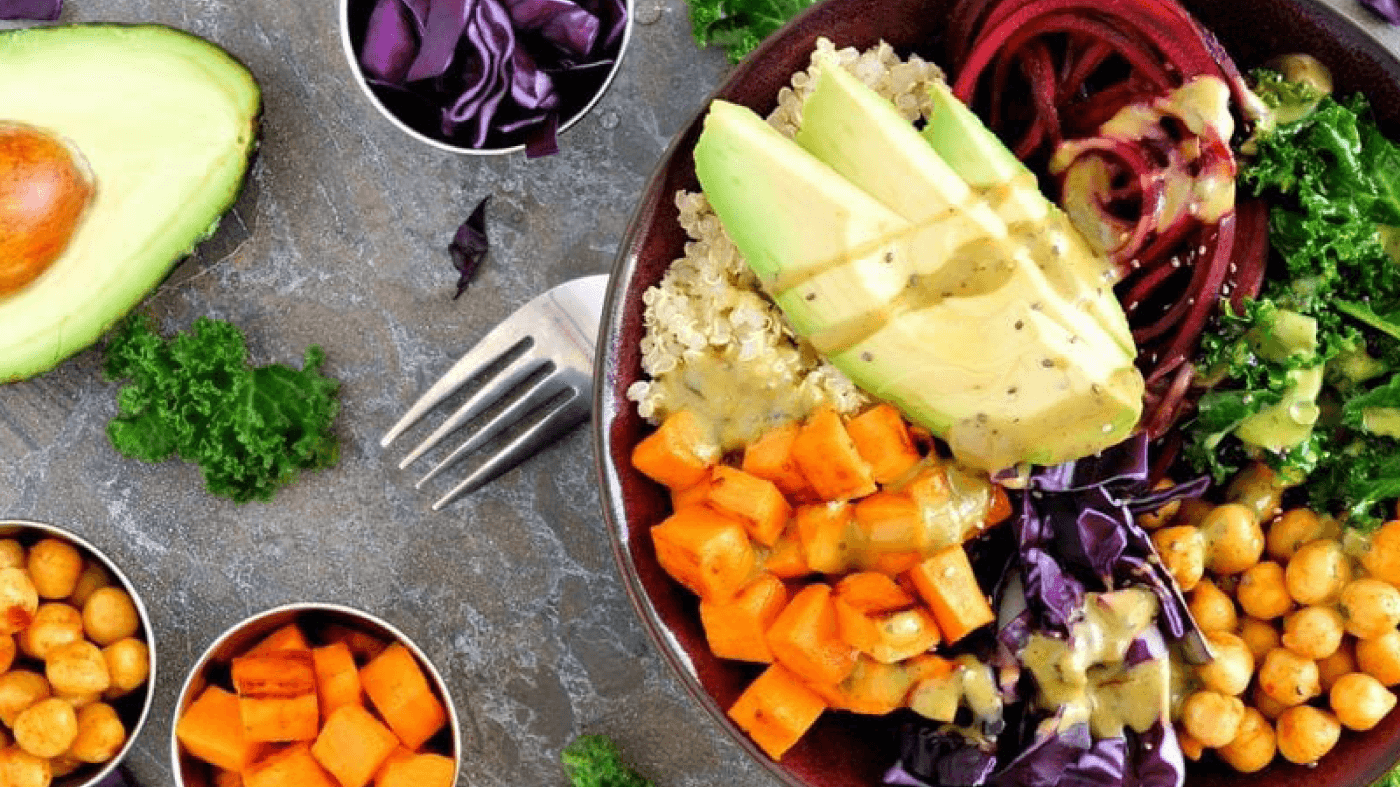Are carbs bad for you? This is a question we’ve received many times. As with most things, there is so much information out there it can make your head spin. Some believe carbs lead to weight gain or even obesity, which in most cases, is not the truth. At So Good So You, we know that carbs don’t deserve the bad rap they’ve earned over the years and what’s really important is the type of carbs you consume. One of the biggest issues is that people lump all carbs together, and fruits & vegetables, grains and legumes are not the same and shouldn’t be lumped in together with refined simple carbohydrates like sugar, candy and white bread.
According to the Mayo Clinic**, naturally occurring carbohydrates are vital to our health and play an important role in providing energy, protecting against disease and even controlling weight. A few things to keep in mind when choosing the right carbohydrates are seeking fiber-rich fruits and vegetables, choosing whole grains, and limiting added sugars. Foods like these will allow you to feel your best, and are great to consume before a workout or big day!
To shed some technical light on the subject, we tapped Dr. Terry Shirvani, a Naturopathic Practitioner that works with our co-founder, Rita (IG:@RitaSaysHi), to develop premium products and serve as a scientific advisor. Below Dr. Shirvani responds to some of the most frequently asked questions surrounding the topic of carbs… Are they bad? What’s their purpose? When can carbs be problematic? And when can they be healthy? Keep scrolling for the low down.
Are carbs actually bad?
Carbohydrates ("carbs") have gotten a very bad rap in recent times, perhaps understandably, due to the incredible abundance of highly refined, sugary junk foods available virtually on demand. Overconsumption of processed, sugar-laden foods has contributed to an epidemic of obesity and metabolic dysfunction in the U.S. as well as worldwide. However, carbohydrates per se are not solely to blame for this crisis, and are still an essential component of the human diet. The notion that all carbs are “bad” doesn't hold up when we take a closer look at what they actually are and what they can provide.
There are two major categories of nutrients: macronutrients, which includes proteins, carbohydrates, and fats; and micronutrients, including vitamins and minerals—many of which are essential, meaning we don't make them in our bodies so we must get them from our diets or in nutritional supplements. Carbohydrates can further be broken down into two types: simple and complex. Simple carbs consist of various short-chain sugars, while complex carbs are made up of longer-chain starches and fibers. As might be expected, simple carbs are easier to digest and absorb than are their longer-chain counterparts.
What is the purpose of carbohydrates?
All nutrients have a primary function in the body. Proteins provide the building blocks (amino acids) for maintenance and repair of body tissues. Fats provide key structural components for the membranes surrounding our cells, as well as a source of storage energy (in fat cells) for times of fasting or famine. Carbohydrates are the main source of caloric energy for most people, supplying "fuel" for both exercise and activities of daily living.
When can carbohydrates be problematic?
As mentioned earlier, carbohydrates can be very problematic when consumed in highly refined, processed forms (we could call these "bad carbs"). Excess consumption of refined, simple carbs can wreak havoc on our metabolic processes and lead to weight gain that can be difficult to control. Our brains have evolved to be on high alert for foods that are sweet and send out signals for us to eat more of those foods, often to the point of unhealthy overconsumption. This once-important neurological wiring was designed to protect us in case of famine, something that is now relatively rare in the Western world.
When can carbohydrates be healthy?
Some carbohydrates are not only good, they can powerfully support our health. Fiber, for example, promotes the growth of beneficial bacteria in the intestinal tract and helps regulate fat and cholesterol metabolism. Moreover, specific health-promoting soluble fibers known as beta-glucans can be found in culinary and medicinal mushrooms as well as in yeast, certain whole grains, and a number of herbs. These polysaccharides (long-chain carbohydrates) have been shown to support immune, cardiovascular, and metabolic health, and to help prevent the development of various acute and chronic conditions. Adding medicinal mushrooms to your diet or taking mushroom- or yeast-derived beta-glucans as supplements is a smart way to consume carbohydrates. Be aware, however, that beta-glucans have differing structures, some of which are more beneficial than others for human health. This topic will be explored in more depth in a later blog post!
There you have it, from our expert. So the truth of the matter is that not all carbohydrates are bad, and many are an essential component of the human diet. While all carbs break down to glucose, the ones you want to consume are those in their closest-to-nature state as possible. Fruits, vegetables, whole grains, and legumes are great examples of healthy carbs and foods we consume often as a part of a wholesome diet. These foods contain varying amounts of fiber, a key nutrient that fuels our body’s probiotics to survive and thrive, ultimately giving us energy and reducing the risk of diseases.
Our philosophy at So Good So You is to consume wholesome, unrefined plant-based products that are as close to the way nature intended as possible. This includes a wide variety of nutritious foods that fall under the ‘carbs’ category, and ones we highly recommend including in a healthy, balanced diet. Look for fiber-rich fruits and vegetables, whole grains, and no unnecessary added sugar. These carbohydrates will help fuel your body, providing energy and reducing risk of disease.
Our food philosophy is reflected in the probiotic shots we produce and sell nationwide. Each is packed with the finest ingredients sourced from the best of the best, made to leave you feeling your very best. Plus, they all come with 1 billion CFUs of probiotic to support a healthy immune and digestive system. To get your hands on one of our shots, visit our store finder here and find a retailer near you.
Interested in reading more lessons from Dr. Terry Shirvani? Check out this blog post on probiotic strains or this one on natural versus man-made nutrients.
So Good So You and its blog materials are not intended to treat, diagnose, cure or prevent any disease. All material on the So Good So You blog is provided for educational purposes only. Always seek the advice of your physician or another qualified healthcare provider for any questions you have regarding a medical condition, and before undertaking any diet, exercise or other health-related programs. **https://www.mayoclinic.org/healthy-lifestyle/nutrition-and-healthy-eating/in-depth/carbohydrates/art-20045705

